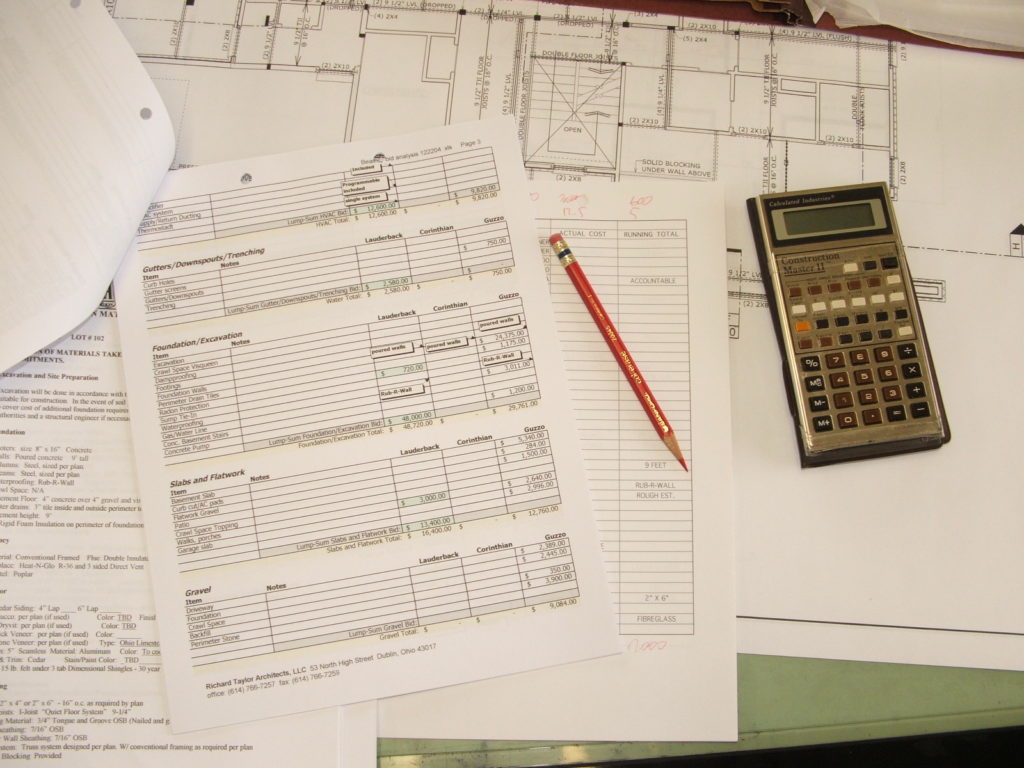
5 Things You Must Have to Get a Fair Price on Your New Home or Remodeling Project
A few years ago a gentleman stopped by our house to ask if he could give me a quote on trimming the trees in my yard – a fairly frequent event on my street, which has a lot of older trees.
I’ve lived here long enough to have talked to dozens of tree trimmers. So I pretty much knew what to expect as soon as he pulled in the driveway in his spotless pickup truck. The truck with the custom graphics, the chrome wheels, and the boat hitch on the back.
The gentleman got out wearing a safety vest and hardhat – both looked new, as did his neatly-pressed jeans.
As I suspected, his price was far above what I knew the work was worth. I thanked him and turned him down; the trees need trimmed, but I’m not going to make the guy’s boat payment to get it done.
Luckily, I already knew what the tree-trimming job should cost.
Likewise, you need to know what your new home or remodeling project should cost before you hire a contractor, because there’s a difference – a big difference – between what some contractors charge, and the best price for your project.
Not that they’re deliberately overcharging you. The problem is either a lack of information or a misunderstanding of the scope of work of the project.
A new home or a remodeling project is a unique, one-of-a-kind thing made from thousands of man-made and natural parts, cut to fit and assembled in the field by hand in frequently lousy weather.
The whole thing is documented on drawings that are a fraction of the actual size and often don’t include everything needed to build it.
So it’s no surprise that different contractors come up with different prices for the same project. How can you know what it really should cost to build? How can you get a fair price on your new home or remodeling project?
Start by Knowing Exactly What You Want
Supposed I’d made “specifications” for my tree project – a list of which trees I wanted trimmed; how I wanted the cuttings dealt with; and how much clean up I wanted done at the end of the job. Now suppose I invited three tree trimming companies to bid on the job based on my specifications.
Do you think I’d get more accurate pricing? And if I were careful and complete about my specs and my choice of bidders, would those prices be competitive?
Three quotes on accurate and detailed specs would result in a very good idea of what a fair price for the job should be – you can’t get that kind of assurance with just one price!
Competitive bidding works the same way in new home and remodeling construction.
Qualified contractors submitting bids on a well-defined project know that they’ve got to give their best price if they want to get the job.
Here are the five basic things you must have to get your project ready for competitive bidding, so you can be sure you’re getting the best price for your new home or remodeling project:
1. Complete, detailed plans
Your local building department doesn’t require any detail about finishes to issue a building permit. All they want to know is whether your plans meet the building code, and the code is mostly about safety – not about what kind of countertops you want.

A set of “permit-ready” or “builder’s” plans is missing a lot of what you need to get accurate and complete bids.
You need far more information – especially drawings of the architectural details inside and outside of the house. Without detail, your contractor will be guessing at what you might pick, not pricing what you really want.
2. Specifications
“Specs” aren’t part of the drawings; drawings tell the contractor where things go, the specs tell them what those things are. The drawings will show a toilet in each bathroom, but the specs tell the contractor what kind of toilets you want. If you want a different toilet in the master bath than the kid’s bath, the specs spell that out.

Without specs, you’re leaving the decisions about the cost of fixtures and finishes up to the bidders.
It’s likely they’ll put a relatively low number in the bid, which might mean increased costs for you later on.
3. General Conditions
There are dozens of little issues to deal with on a construction project that have nothing to do with construction, but everything to do with the price, with the timing, and with the quality of the work.
Insurance is one, as are working hours; parking for subcontractors; change order procedure; quality assurance; dispute resolution; cleaning, and on and on. A “general conditions” document spells all this out.
4. Quality, Qualified, Equal Bidders
There’s no point in asking very different types of contractors to bid on your project.
An experienced, qualified contractor with a track record of success, competing against two guys with a pickup truck and a magnetic door sign isn’t going to get you an apples-to-apples comparison.
Want more detail? Read this article about how the competitive bidding process works.
Choose the level of quality/reputation/price you’re interested in and choose all your bidders from that category.
5. References
I’m constantly surprised by how often homeowners don’t check references. They often ask for them, but don’t always follow up with the reference.
References can give you confidence in a contractor, but they can raise important red flags, too.
It can seem overwhelming, getting all this information together and managing the bidding process. But consider your choices – clearly identify the details of your project up front, or risk overspending by thousands of dollars.
If you’re interviewing Architects to design your project ask them if they offer managing the bid process as a service.
But even if you take this on yourself, you’ll be much better off – and won’t pay for someone else’s boat in the process.
Next Up: Choosing a Home Builder is an Important Decision – Here’s How to Get it Right


